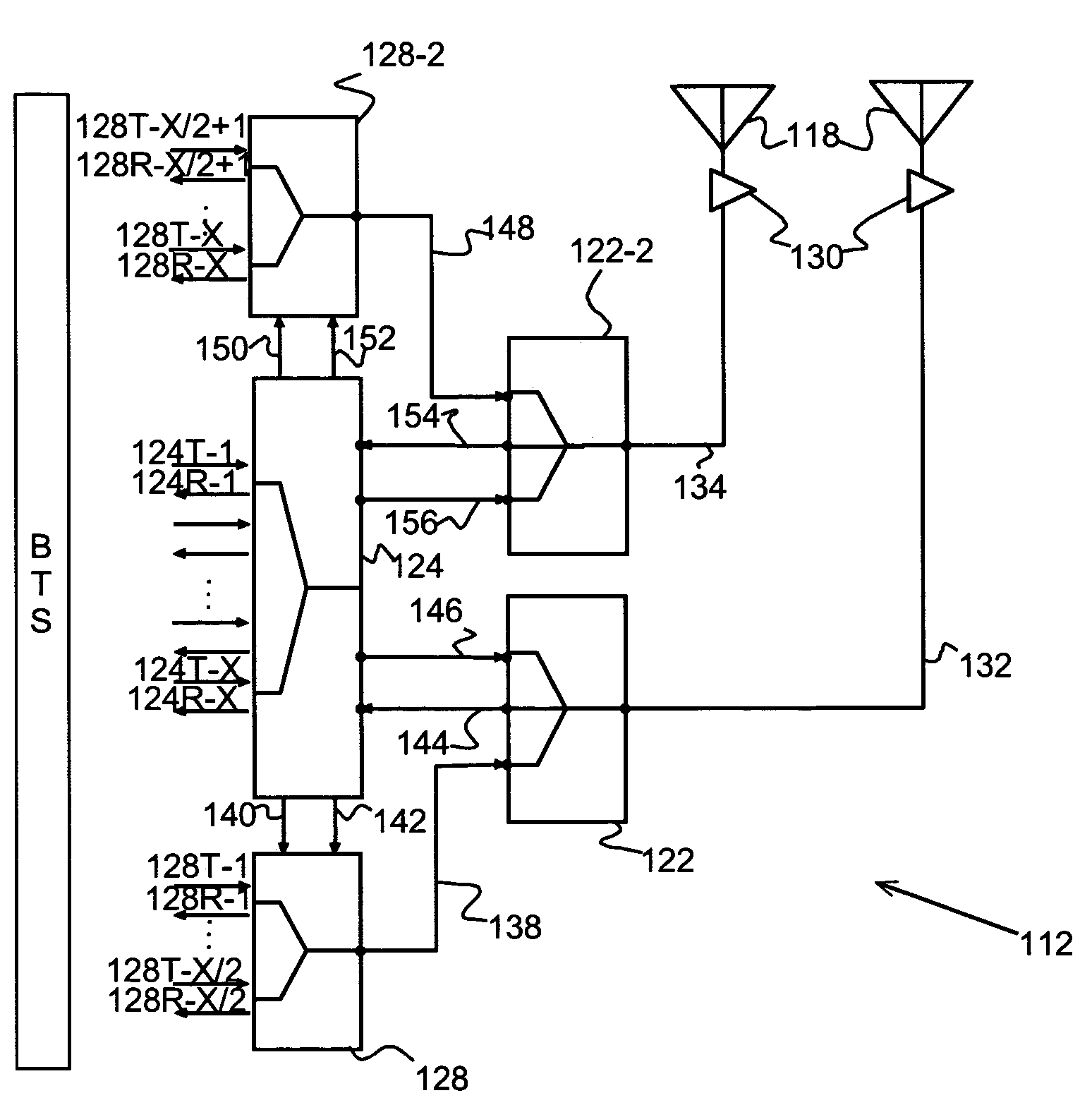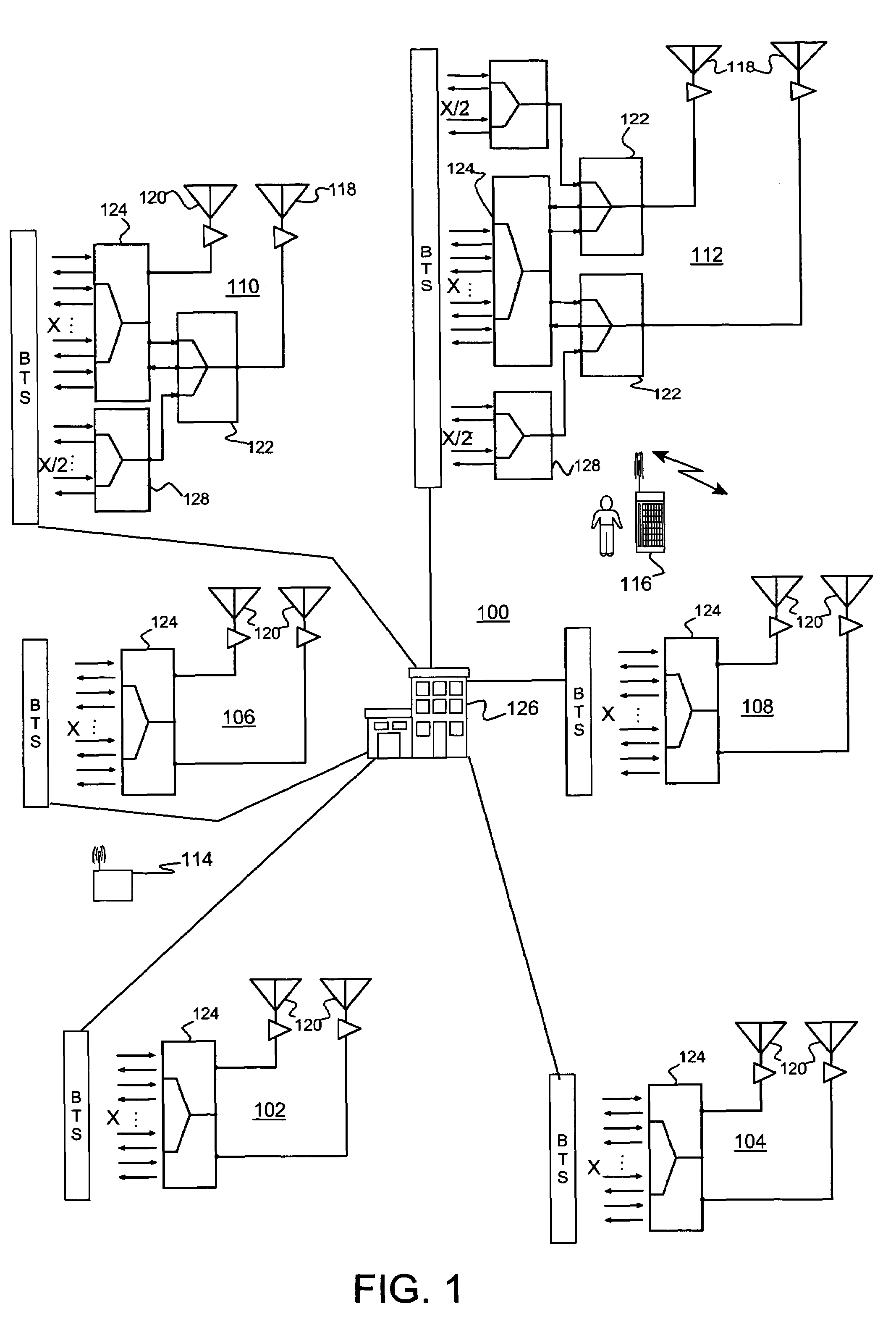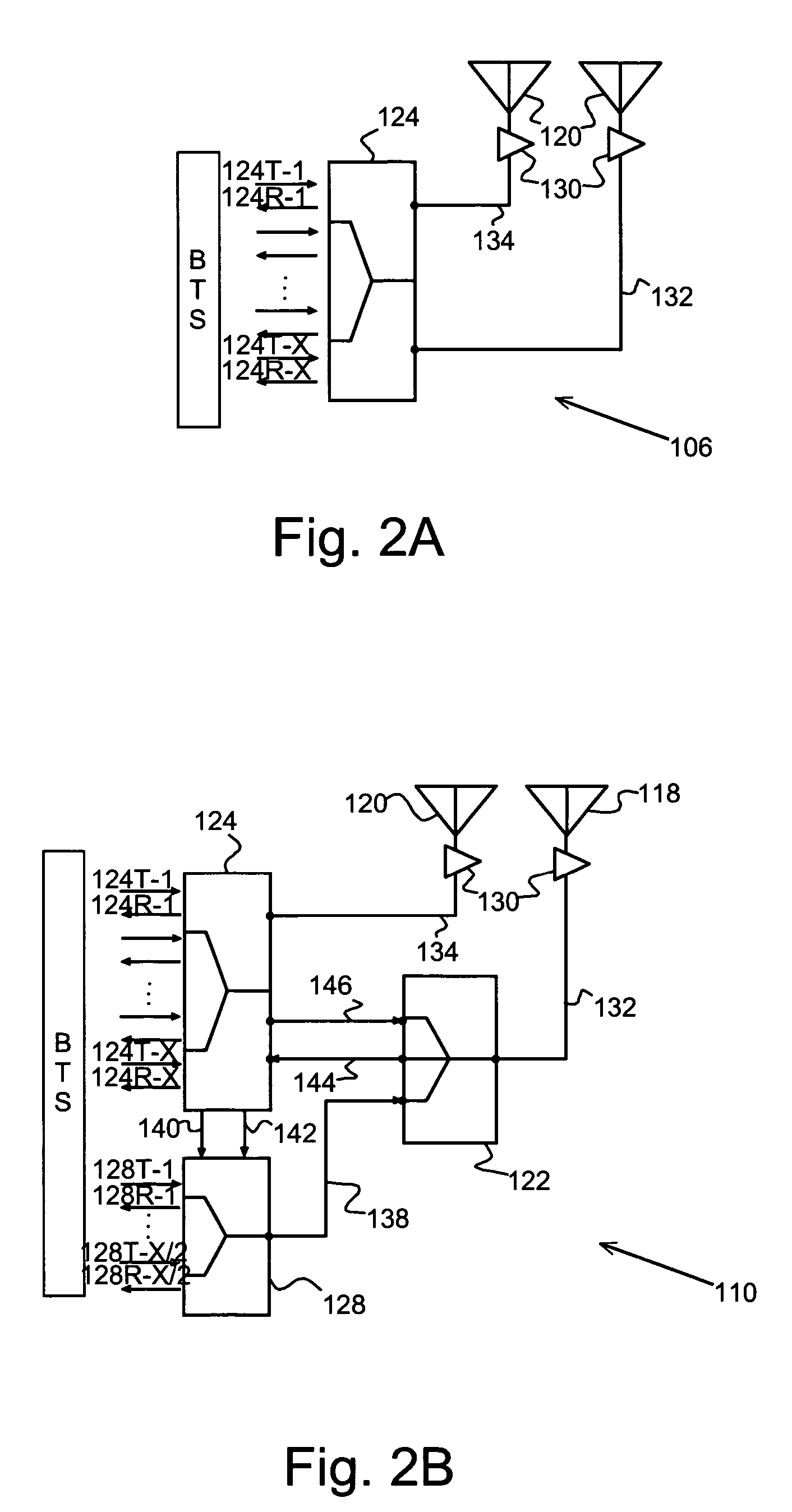Mobile communications network with expanded carrier capacity and method of expanding base station carrier capacity
a mobile communications network and carrier capacity technology, applied in the field of mobile communications, can solve the problems of inability to meet the ever-increasing demand, inability to recover downlink power through increasing the transmitter power of the base station, and no longer receive service from mobile units at the original cell perimeter, etc., to achieve the effect of increasing the base station capacity, reducing the impact of footprint, and reducing maintenance costs
- Summary
- Abstract
- Description
- Claims
- Application Information
AI Technical Summary
Benefits of technology
Problems solved by technology
Method used
Image
Examples
Embodiment Construction
[0021]Turning now to the drawings and, more particularly, FIG. 1 shows an example of a preferred embodiment wireless network 100 or mobile communication system, e.g., a single sideband network such as a Global System for Mobile Communication (GSM) network, a Time Division Multiple Access (TDMA) network, Code Division Multiple Access (CDMA) network or an equivalent network. Each Base Transceiver Station (BTS) 102, 104, 106, 108, 110, 112 in the network serves Mobile Stations (MSs) or mobile units 114, 116 within reception range of a base station antenna 118, 120, two in this example. Mobile units 114, 116 may include cellular phone handsets (cell phones) or other devices with a wireless communications interface, e.g., a computing device such as a personal digital assistant (PDA), laptop computer or tablet computer and etc. One or more of the BTSs (110 and 112 in this example) in the wireless network 100 include a triplexer 122 between the base station duplexer / combiner 124 and antenn...
PUM
 Login to View More
Login to View More Abstract
Description
Claims
Application Information
 Login to View More
Login to View More - R&D
- Intellectual Property
- Life Sciences
- Materials
- Tech Scout
- Unparalleled Data Quality
- Higher Quality Content
- 60% Fewer Hallucinations
Browse by: Latest US Patents, China's latest patents, Technical Efficacy Thesaurus, Application Domain, Technology Topic, Popular Technical Reports.
© 2025 PatSnap. All rights reserved.Legal|Privacy policy|Modern Slavery Act Transparency Statement|Sitemap|About US| Contact US: help@patsnap.com



